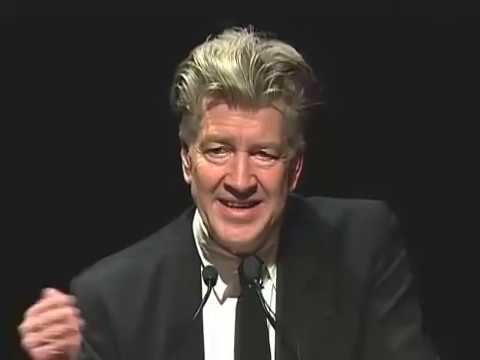- Photo:
Any fan of Twin Peaks knows if there's one thing David Lynch loves, it's a damn fine cup of coffee. Not only does the auteur admit to drinking anywhere from 10 to 20 cups a day, but he also started his own line of signature coffee: David Lynch Signature Cup. And if you're wondering if he has a personal brewing philosophy, he does: "Lots of people are doing really great things in coffee these days, but you have to find what works for you and you can instantly go to heaven."
Transcendental Meditation

- Photo:
Outside the world of film and television, David Lynch's greatest contribution to society may be the introduction of transcendental meditation to the lay person outside of the Los Angeles smog. Not only does he believe that meditation can cure humanity from the disease of stress, but he thinks it's the only way for a person to find true happiness and success.
"You want more ideas, you want more energy to do the work and more happiness in the doing – where are all of these things? They are within... I think ideas are out there and you catch them like how you catch fish. The more consciousness you have, the deeper you can catch those ideas."
Among the many converts to Lynch's vision of meditation is Alkaline Trio frontman Matt Skiba, who joined Blink-182 in the wake of Tom Delonge's departure.
Music
- Photo:
Lynch has said many times that music is one of the ways in which he's able to manifest cinematic images in his mind. Case in point: the song "Blue Velvet." While being interviewed for BAM at the New York Public Library he commented, “I never really liked [Blue Velvet]. But one day I listened to it, and suddenly images just started coming out of nowhere.”
The Weather
![The Weather]()
- Photo:
Why did David Lynch spend so much of the 2000s reporting the weather on his website? Maybe a daily weather report was his way of focusing his chi. Or maybe he genuinely thought we needed to hear how the weather was at his house in the Hollywood Hills. Maybe he just knew that we'd need it. Maybe it's a meta commentary on something. Maybe he was bored?
If you'd like to investigate further, you can read DavidLynch.com: Auteurship in the Age of the Internet and Digital Cinema by Zoran Samardzija, Columbia College Chicago, in which Lynch's weather reports are mentioned very briefly (as in, like, once).
The Suburbs
Lynch's obsession with middle America and the dark underbelly of the suburbs began all the way back in first film, Eraserhead (1977), and continued to Inland Empire (2006). The old adage says that you should write what you know, and according to Lynch, he grew up in an idyllic suburban home in Missoula, Montana, where he'd go on to become an Eagle Scout. Maybe he's never been able to shake his suspicions of what lies beneath perfect smiles and manicured lawns, or maybe he still sees something dark in the promise of suburban USA.
The Stage
It's almost guaranteed that if you're watching a David Lynch film, you'll come face to face with a theater stage at some point. Eraserhead, Blue Velvet, Mulholland Drive, Lost Highway, The Elephant Man, Twin Peaks, all of these films feature red curtains, a wooden stage, and floor lights of some kind. It's possible the theater is simply a visual motif Lynch enjoys, but it's more likely a handy way of reminding the audience that while we're with Lynch, we're living in a dream world, an area in which everything is performance. This may reach beyond Lynch's films into his philosophical approach to the world ta large.






